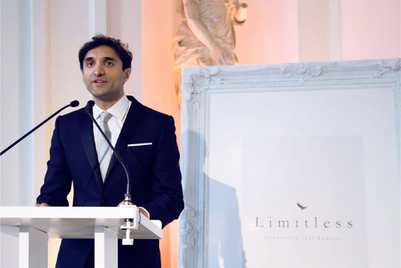
| PARTNER CONTENT |
While millennials’ habits are much-maligned by the media, brands are vying harder than ever to grab the attention of this profoundly influential consumer group. But how far are advertisers missing out by lumping all millennials into one category?
This is just one viewpoint that Devi Attamimi, the new institute director of Hakuhodo Institute of Life and Living Asean (Hill Asean), is considering as she begins her tenure this month.
Established in 2014 by leading Japanese marketing company Hakuhodo Group, Hill Asean is a think tank focused on the Asean states, producing detailed reports into consumer trends emerging across the region. In recent years, Hill Asean has investigated millennial mindsets, perceptions of gender equality in the Asean home, and the evolution of ‘smart’ technologies in the region, offering fresh viewpoints on marketing approaches.
“I am the first non-Japanese person to have this strategic role,” highlights Attamimi, who hails from Indonesia. “That’s not just important for me, but also for Asean countries. It shows we’re equally important. Most Asean countries are emerging, so we share similar concerns. We have so many dreams, and we really want to develop ourselves.
“I have strong knowledge about Asean countries; of what’s different in every market,” continues Attamimi, who has worked at Hakuhodo in Indonesia since 2011, and has a total of 19 years’ experience in the industry.

Hill Asean’s philosophy centres around the concept of sei-katshu-sha, a Japanese term referring to the holistic elements that make up a person. “We value people as whole beings,” Attamimi says. “This is even more relevant in the technological age. Whereas a lot of companies are focusing on technology, we are focusing on the human. Sei-katshu-sha is a way of life; it’s the why, what and how of humans.”
Hill Asean’s 2016-2017 report into millennials is the perfect example of sei-katshu-sha in action. “People talk about millennials as one group, but the ‘millennial’ group itself consists of a 20-year age gap,” Attamimi highlights. “We found a difference in terms of mindset and behaviour within millennials across that gap. We did a deep dive, and it turns out almost 70 percent of millennials feel they don’t understand each other. For example, those born in the 80s still need to touch and feel a product before they buy it, whereas those born in the 90s can imagine what the product looks like by reading online reviews. There is no ‘one size fits all’ approach [to marketing to millennials]. It is too wide of a group to be segmented.”
Hill Asean’s fifth and most recent report, which came out in January 2019, highlights how the very definition of a brand is shifting as we enter the ‘assistive age’ of smart technology. It’s an important factor for forward-looking advertisers in Asean countries, where IoT and AI adoption is exponentially increasing.
There'd a shift from storing information in one's head to storing Me Data online. Because of this, consumers will enjoy a less tedious purchasing journey, while remaining exposed to different options at the same time.
"For example, right now, if you spill wine on the carpet, you’d scramble for a bottle of detergent. In the future, you’ll be able to ask AI for assistance, and it will either suggest a recipe for a home-made cleaner, call a cleaning agency, or perhaps suggest you change the carpet altogether.”
With her new role at the helm, where does Attamimi want to steer Hill Asean?
“Firstly, we don’t want to be a passive follower of trends, but an active trendsetter,” she says. “We want to shift from studies on current trends to projecting what Asean society is going to be like in five years. Secondly, we want to give tangible solutions in terms of products, events or content. The third thing is that Hill Asean used to be very Japanese-driven.” At this moment, the gravitas of being the institute’s first non-Japanese director is clear and resounding. Attamimi pauses, considering her words. “This is the right moment to be more Asean-driven.”


.jpg&h=334&w=500&q=100&v=20250320&c=1)

.jpg&h=334&w=500&q=100&v=20250320&c=1)

.jpg&h=334&w=500&q=100&v=20250320&c=1)

.jpeg&h=334&w=500&q=100&v=20250320&c=1)


.jpg&h=334&w=500&q=100&v=20250320&c=1)







.jpg&h=268&w=401&q=100&v=20250320&c=1)